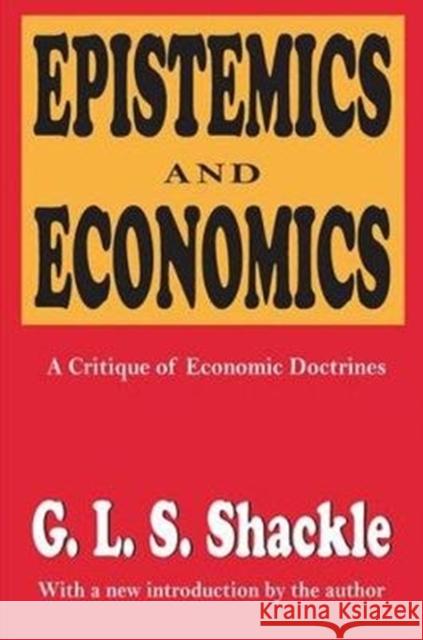Epistemics and Economics: A Critique of Economic Doctrines » książka
topmenu
Epistemics and Economics: A Critique of Economic Doctrines
ISBN-13: 9781138522923 / Angielski / Twarda / 2017 / 495 str.
Epistemics and Economics: A Critique of Economic Doctrines
ISBN-13: 9781138522923 / Angielski / Twarda / 2017 / 495 str.
cena 759,15
(netto: 723,00 VAT: 5%)
Najniższa cena z 30 dni: 654,86
(netto: 723,00 VAT: 5%)
Najniższa cena z 30 dni: 654,86
Termin realizacji zamówienia:
ok. 16-18 dni roboczych.
ok. 16-18 dni roboczych.
Darmowa dostawa!
It is Shackle's view that human conduct is chosen with a view to its consequences











